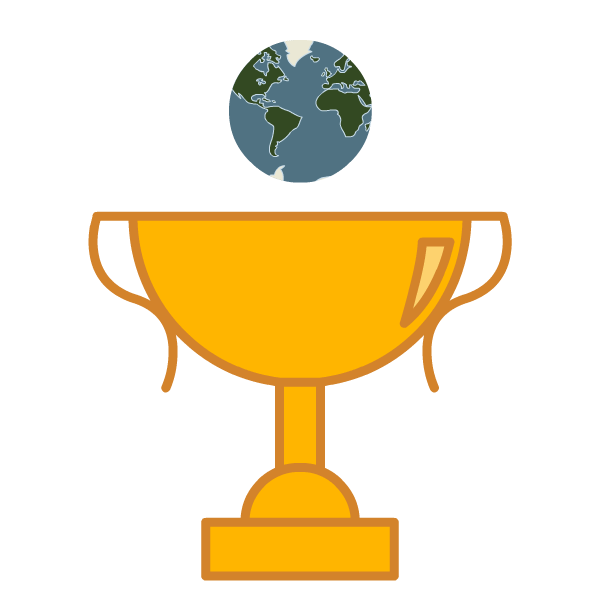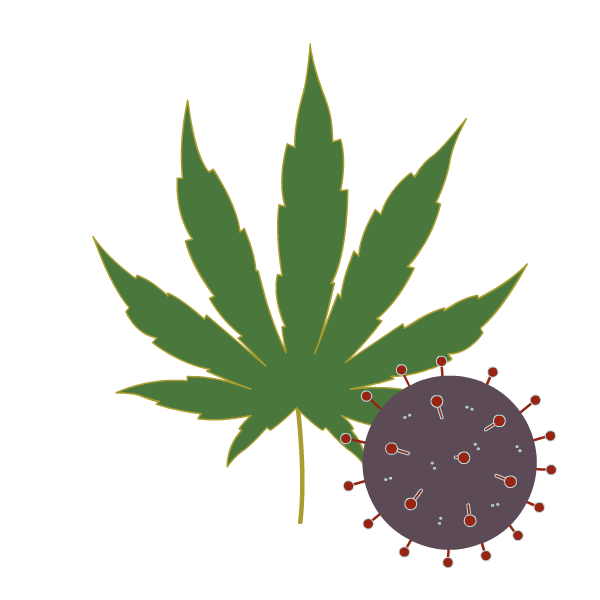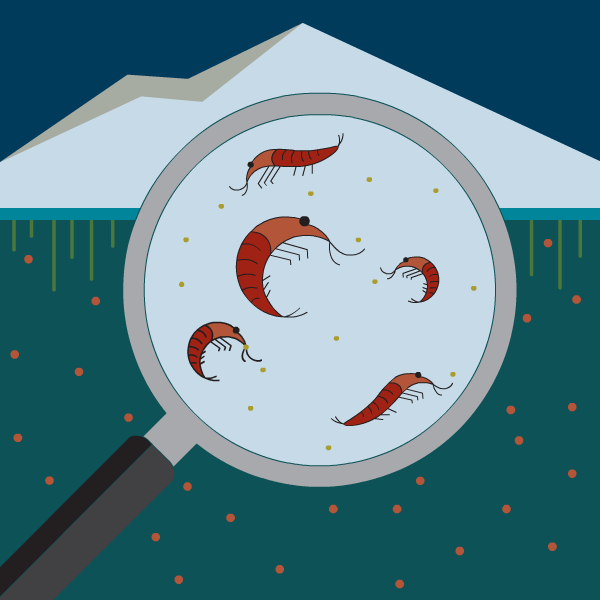Oregon State University has named Yanyun Zhao and Emily Ho as its 2023 University Distinguished Professors, the highest academic honor the university can bestow on a faculty member.
Zhao and Ho have both been internationally recognized for their research. Zhao’s work has made an impact on the environmental sustainability of food packaging. And Ho has uncovered connections between nutrition, managing chronic disease and preventing cancer.
Since 1988, Oregon State has awarded the title of University Distinguished Professor to faculty who have achieved national and international distinction for their contributions to scholarship, research and creative work, teaching and mentoring, public engagement and service.
Distinguished Professor Lectures — Wednesday, May 24
Zhao and Ho will present lectures on Wednesday, May 24 in the Memorial Union Horizon Room. Zhao will present at 8:30 a.m. and Ho will present at 3:30 p.m. A reception for both will take place at 5 p.m. Advanced registration and in-person attendance are encouraged, and all lectures will be recorded and livestreamed.
Yanyun Zhao
Distinguished Professor of Food Science and Technology
College of Agricultural Sciences
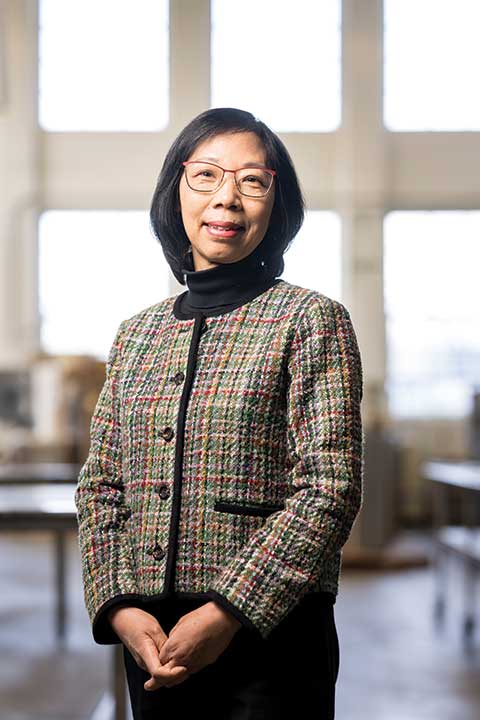
What originally drew you to your field of study?
My Ph.D. dissertation research on advanced food packaging technologies originally led me to the world of packaging. However, learning about the possibilities of edible packaging truly inspired me to work in the field. Over a two-decade-long research journey, my scope of study has been significantly expanded beyond just edible packaging to other sustainable solutions that reduce packaging’s impact on the environment and provide convenience and health benefits to consumers.
What keeps you motivated at this stage in your career?
The imperative needs and enormous opportunities to improve today’s packaging system motivate me to continuously innovate in sustainable packaging with new discoveries. Having received a great deal of support during my time at OSU, I also feel motivated to invest more time and energy into mentoring, supporting and developing faculty and students at all levels.
What’s the one big takeaway you’d want someone to know about your field of study?
We can do better to protect our environment and ecosystem by replacing plastic packaging with more sustainable solutions. Edible packaging not only results in zero packaging waste, but it can also provide additional benefits to food and consumers. Food and agricultural biowaste can be utilized to create edible, biodegradable and/or compostable packaging. Most importantly, OSU’s technological innovations can play a role in promoting a more sustainable future.
What have you learned from your work that surprised you?
The potential to turn trash into treasure — converting the biowaste and byproducts generated from food manufacturing and agricultural production into high-value products. While my lab has developed a series of technologies to convert cellulose fiber-based biowaste into functional food ingredients and packaging materials, more needs to be done to reach zero waste — not only to reduce the environmental impact but also to provide economic benefits to the food and agriculture industry.
What does the title Distinguished Professor mean to you?
I am very humbled to receive the title of Distinguished Professor. I feel proud to be recognized for my accomplishments and journey. I’m extremely grateful for the mentorship, support and collaboration I have received and for the contributions from each past and current lab team member to my career. The title also imparts a stronger sense of responsibility in making a positive impact in my academic career and beyond.
Questions just for fun:
When did you arrive at Oregon State? From where?
I arrived at OSU from Iowa State University in 1996 following my partner’s employment in Corvallis, first as a personal contract, then as an assistant professor (senior research) at OSU’s Food Innovation Center. I left OSU for a tenure-track faculty position at the University of Connecticut in 1999. In the summer of 2001, I returned to OSU as an associate professor and food product specialist.
Where’s your favorite place to eat on campus?
West Dining Center. I love the dynamic environment and food choices there.
What are some of your hobbies?
Reading, hiking and cooking Chinese dishes.
If you could travel anywhere in the world, where would you go?
Rome, Italy and Sydney, Australia. I love both ancient and modern architecture.
If you hadn’t gone into academia, what do you think you would have done instead?
Be a clinical research physician.
Emily Ho
Distinguished Professor of Nutrition
College of Public Health and Human Sciences
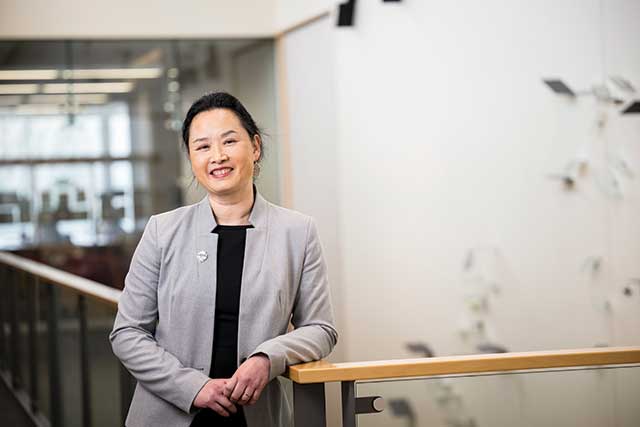
What originally drew you to your field of study?
As an undergraduate student at the University of Guelph, I took part in a summer laboratory fellowship. There, I learned that oxidative stress and antioxidant balance had a big impact on health. This work drew me into the field of nutrition, where I started studying the health properties of compounds found in food.
What keeps you motivated at this stage in your career?
First, that there are burning questions left unanswered in nutrition. In some respects, nutrition science is a lot like exploring an undiscovered country. Also, I am concerned with the amount of misinformation out there, especially around nutrition and health. We need to do a better job of educating people about the work we do — inspiring future leaders in our students, and sharing science in different ways is hugely rewarding.
What’s the one big takeaway you’d want someone to know about your field of study?
We are discovering new things every day. That often confuses people, because one day you hear about a scientific discovery about the food you eat, and it could get contradicted the next day — but that’s just the nature of an evolving scientific field. That’s also why it’s so important to find a source of nutrition information you can trust.
What have you learned from your work that surprised you?
I think one of the most amazing things is how powerful eating the right foods can be. The evidence we have right now shows that the development of certain cancers is driven by poor food choices and poor nutrition — almost as much as smoking. If that doesn’t speak to the power of good nutrition, I don’t know what does.
What does the title Distinguished Professor mean to you?
To me, becoming a Distinguished Professor is more than just a recognition of our scholarly achievements — it is a vote of confidence from Oregon State University of the impact we can have on Oregon, the nation and the world. I feel extremely honored to join the ranks of my heroes, especially the many faculty in the Linus Pauling Institute who have also been given this honor.
Questions just for fun:
When did you arrive at Oregon State? From where?
I arrived at Oregon State University in 2003, coming from the University of California, Berkeley. There, I was working with Dr. Bruce Ames, who is a giant in the world of nutrition and optimum health. Before that, I was at Ohio State University with Dr. Tammy Bray. The Linus Pauling Institute and College of Public Health and Human Sciences under Dr. Bray’s leadership were some of the big reasons I came to OSU.
Where’s your favorite place to eat on campus?
I have several! I love a good salad, so I often go over to e.Cafe to custom order whatever salad I want. I also love the grain bowls offered at West Dining Hall (I collaborated with UHDS when I was Moore Family Center director). However, there’s a really nice café on the first floor of the Linus Pauling Science Center called Ava’s Café, and I like jumping down there for a tea and sandwich from time to time.
What are some of your hobbies?
I love to be active. I teach cardio kickboxing classes at Oregon State University in the Faculty Staff Fitness program for fun. My kids and I are also big foodies.
If you could travel anywhere in the world, where would you go?
Whenever I travel, I love to experience the local food. There are so many cultures around the world I would love to experience. I have a long list. But if you asked me today, I would love to go to Italy with my family and get the full Italian food experience with them.
If you hadn’t gone into academia, what do you think you would have done instead?
Before I got hooked on nutrition and health, I originally thought I was going to be a veterinarian. I really love animals. My “third child” is Mr. B (aka Bruno), the rescue dog.
